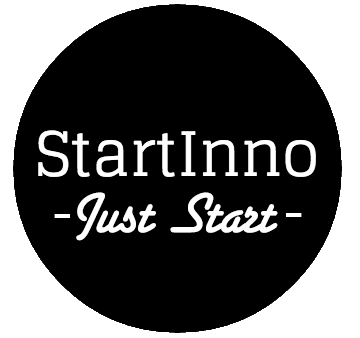By being lean and focused you can out perform the competition more than you realise
Before coworking in the studio, I wasn’t much into the startup scene to say the least. I just remember reading about the studio and its core business on the website and thinking: I have to be a part of this. Build it and they will come, right? Not exactly.
So here I am, at the innovation studio, where focus is the mantra and the Lean Startup methodology is our every day practice. And so far, it’s been a hell of a ride. Because of the lean principles, I gained more valuable marketing insights than ever before, I (finally) grasp the beauty and power of technology, I’m meeting impressive people with great visions, I’m more creative than ever, and the best part is: I learn so much every day, I grow every day.
It’s a movement.
Incubators and accelerators are gaining popularity across the world. Terms like Minimum Viable Product and pivoting have gone mainstream and business schools are integrating them in their curricula. Even big enterprises are now launching startups inside their enterprises to leverage innovation and creativity. Executives are being trained to embrace concepts like risk taking, learning from failure and last but not least: collaboration. They create a one-page business plan instead of lengthy (read: boring) presentations. They develop minimal product prototypes quickly and cheaply to test their assumptions. They give two-minute spiels at pitch parties and attend failure conferences.
Think big and start small. The Lean Startup is all about focus.
The origin of the buddhist monk tradition of wearing the same robe every day, was to enable them to focus on what’s most important: fulfilling their deepest purpose. Steve Jobs’ consistent uniform of a black turtleneck, blue jeans and sneakers grew from the same desire. Likewise Mark Zuckerberg's hoodie.
“Focus is a mantra - a deeply ingrained human longing. It’s the key to getting in ‘the zone’ - a quasi spiritual state of single-minded immersion, total dedication and emotional detachment. Focus is a fundamental ingredient in all exceptional performance.”
The idea is that if you can focus, you can build a small thing, for a small segment, get it to them fast and learn quickly. You’re going to fail at some point. Don’t avoid it by doing research, building everything and then waiting. It’s much better to be wrong, embarrassed and shredded quickly, cheaply and by a small segment, than slowly, expensively and by the whole world.
You can only learn by doing. Learning is the key to success. Always.
The Lean Startup movement is about doing, learning, improving. It favours experimentation over elaborate planning, customer feedback over intuition, and iterative design over traditional “big design up front” development. This movement is driving innovation. (Startup Focus)
“I imagine Lean Startup principles applied to government programs, to healthcare, and to solving the world’s great problems. It’s ultimately an answer to the question ‘How can we learn more quickly what works, and discard what doesn’t?”
Moving fast enables you to build things quicker.
At Facebook they have a saying: move fast and break things. Because if you never break anything, you’re not moving fast. By doing and moving fast you harvest the power of momentum, a huge force that’s behind taking action, behind the doing. Momentum equals success and validated learning equals productivity.
Eric Ries crystallised the The Lean Startup in 2011 with idea that startups can shorten their product development cycles by adopting a combination of business-hypothesis-driven experimentation, iterative product releases, and what he calls ‘validated learning’. Ries states that if startups invest their time into iteratively building products and services to meet the needs of early customers, they can reduce the market risks and sidestep the need for large amounts of initial project funding and expensive product launches and failures (Wikipedia)
“Be more innovative. Stop waisting people’s time. Be more successful.”
Here are the most basic terms within The Lean Startup methodology we practice:
- Validated learning. Startups exist not just to make stuff, make money, or even serve customers. They exist to learn how to build a sustainable business. This learning can be validated scientifically by running frequent experiments that allow entrepreneurs to test each element of their vision. Validation is the phase where you test an actual product with actual customers to find product / market fit.
- Build-Measure-Learn. The fundamental activity of a startup is to turn ideas into products, measure how customers respond and then learn whether to pivot or preserve. All successful startup processes should be geared to accelerate that feedback loop.
- Pivot. A pivot is a “structured course correction, designed to test a new fundamental hypothesis about the product, strategy and engine of growth. Steve Blank defines pivot as "changing - or even firing - the plan instead of the executive (the sales exec, marketing or even the CEO).
The applications for the next Batch are now open, however, the positions are limited. Are you curious about what the Lean Startup could mean for you or your business?
We have an information night coming up, this gives you a chance to visit the studio, meet the mentors, some current members of our innovation programs and ask anything you like to know.
In any case, don't hesitate to connect with us. #juststart

